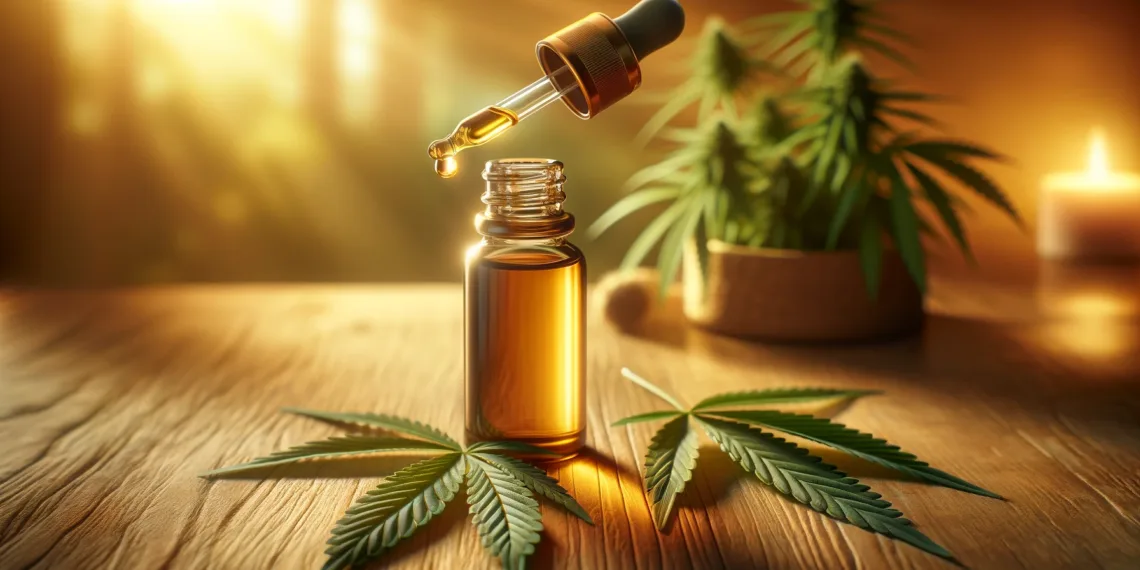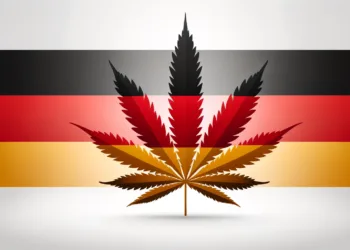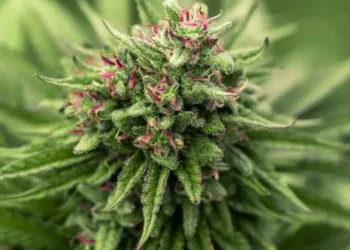The Healing Power of Hemp CBD – Exploring its Therapeutic Benefits
In recent years, there has been a surge of interest in the potential therapeutic benefits of Hemp CBD (cannabidiol). Derived from the hemp plant, CBD is a non-psychoactive compound that has been gaining recognition for its healing properties. In this blog, we will delve into the advantages of the healing power of Hemp CBD and explore the various therapeutic benefits it offers.
- Natural Pain Relief:
One of the primary advantages of Hemp CBD is its natural pain-relieving properties. Studies have shown that CBD interacts with the endocannabinoid system, helping to reduce inflammation and alleviate chronic pain. Whether it’s joint pain, arthritis, or muscular discomfort, CBD has emerged as a promising natural alternative for pain management.
- Anxiety and Stress Reduction:
In our fast-paced world, anxiety and stress have become prevalent issues. Hemp CBD has shown promise in reducing anxiety and stress levels by interacting with receptors in the brain known to regulate mood and stress responses. Many individuals have turned to CBD as a natural way to promote relaxation without the side effects often associated with traditional medications.
- Improved Sleep Quality:
For those struggling with insomnia or irregular sleep patterns, Hemp CBD may offer a solution. CBD has been reported to enhance the quality of sleep by addressing underlying issues such as anxiety or pain. Unlike some sleep aids, CBD does not induce drowsiness during the day, making it a preferable option for those seeking a more natural sleep remedy.
- Anti-Inflammatory Properties:
Chronic inflammation is a common factor in various health conditions, including autoimmune disorders. Hemp CBD’s anti-inflammatory properties make it a potential ally in managing inflammatory responses within the body. This could have implications for conditions such as rheumatoid arthritis or inflammatory bowel diseases.
- Neuroprotective Effects:
Research suggests that Hemp CBD may have neuroprotective properties, making it a subject of interest in conditions related to neurodegeneration. While more studies are needed, early findings indicate that CBD could potentially play a role in supporting brain health and protecting against neurological disorders.
- Support for Mental Health:
Beyond anxiety, CBD has shown promise in supporting mental health in various ways. It may assist in managing conditions such as depression or post-traumatic stress disorder (PTSD) by influencing serotonin receptors in the brain. As research continues, CBD’s potential applications in mental health may become more defined.
The healing power of Hemp CBD is a fascinating and evolving area of research. As the stigma surrounding hemp-derived products continues to fade, more individuals are exploring the therapeutic benefits of CBD as a natural alternative or complementary approach to traditional medicine. It is essential to consult with healthcare professionals before incorporating CBD into your wellness routine, especially if you are taking other medications. With ongoing research and growing acceptance, Hemp CBD is likely to play a significant role in the future of holistic health and well-being.

FAQ – Hemp CBD: A Natural Remedy for Stress and Anxiety
Q1: What is Hemp CBD, and how is it different from marijuana-derived CBD?
A1: Hemp CBD, or cannabidiol, is a compound derived from the hemp plant. Unlike marijuana, hemp contains low levels of THC, the psychoactive component responsible for the “high.” Hemp CBD offers therapeutic benefits without the mind-altering effects associated with marijuana.
Q2: How does Hemp CBD help with stress and anxiety?
A2: Hemp CBD interacts with receptors in the endocannabinoid system, which plays a role in regulating mood and stress responses. By influencing these receptors, CBD may help reduce anxiety and stress levels, promoting a sense of calm and relaxation.
Q3: Is Hemp CBD legal, and can I use it without a prescription?
A3: In many places, hemp-derived CBD with less than 0.3% THC is legal, and you can purchase it without a prescription. However, regulations vary, so it’s essential to check your local laws before using CBD. Always choose products from reputable sources to ensure compliance.
Q4: Are there side effects associated with Hemp CBD for stress and anxiety?
A4: While Hemp CBD is generally well-tolerated, some individuals may experience mild side effects such as drowsiness, dry mouth, or changes in appetite. It’s crucial to start with a low dose and monitor your body’s response. Consult with a healthcare professional if you have concerns.
Q5: Can Hemp CBD be used alongside prescription medications for anxiety?
A5: It’s essential to consult with a healthcare provider before combining Hemp CBD with prescription medications. CBD can interact with certain drugs, affecting their effectiveness or increasing the risk of side effects. Your healthcare professional can provide personalized guidance based on your specific situation.
Q6: How long does it take for Hemp CBD to alleviate stress and anxiety symptoms?
A6: The onset of CBD effects varies among individuals. Some may experience relief within minutes, while others may require consistent use over a few weeks to observe significant changes. Patience and consistent dosing are key factors in realizing the full benefits of Hemp CBD.
Q7: Can Hemp CBD help with sleep issues related to stress and anxiety?
A7: Yes, Hemp CBD may promote better sleep by addressing underlying factors like anxiety. Many users report improved sleep quality and reduced insomnia symptoms. However, individual responses vary, and it’s advisable to establish a consistent CBD routine for optimal results.
Q8: Are there specific dosages recommended for managing stress and anxiety with Hemp CBD?
A8: Dosage can vary based on individual factors such as body weight, metabolism, and the severity of symptoms. It’s advisable to start with a low dose and gradually increase as needed. Consulting with a healthcare professional can help determine an appropriate dosage for your specific situation.
Q9: Can Hemp CBD be addictive?
A9: Hemp CBD is not considered addictive, as it does not contain the psychoactive compound THC found in marijuana. It’s essential to use CBD responsibly and in accordance with recommended dosages to ensure a safe and positive experience.
Q10: Where can I purchase high-quality Hemp CBD products for stress and anxiety?
A10: Reputable dispensaries, online retailers, and wellness stores often carry high-quality Hemp CBD products. Look for brands that provide third-party lab testing and transparent information about their sourcing and extraction processes to ensure the product’s quality and purity.

Hemp CBD vs. Marijuana CBD: Understanding the Differences
The growing popularity of CBD (cannabidiol) has led to an increased interest in understanding the distinctions between Hemp CBD and Marijuana CBD. Both are derived from cannabis plants but exhibit notable differences in terms of legality, composition, and effects. Here’s a comprehensive guide to help you grasp the variances between Hemp CBD and Marijuana CBD.
1. Plant Source:
- Hemp CBD:
- Derived from the hemp plant (Cannabis sativa).
- Hemp plants are cultivated for various industrial purposes, including textiles, paper, and health products.
- Contains low levels of THC (tetrahydrocannabinol), the psychoactive compound responsible for the “high” associated with marijuana.
- Marijuana CBD:
- Extracted from the marijuana plant (Cannabis indica or Cannabis sativa).
- Grown primarily for medicinal or recreational purposes.
- Can contain higher levels of THC, resulting in psychoactive effects.
2. THC Content:
- Hemp CBD:
- Legally must contain less than 0.3% THC in the United States and similar limits in many other countries.
- Non-psychoactive, meaning it doesn’t produce a “high” sensation.
- Marijuana CBD:
- Variable THC content, with some strains containing high levels.
- Can induce psychoactive effects when consumed in larger quantities.
3. Legal Status:
- Hemp CBD:
- Federally legal in many countries, including the United States, as long as it adheres to THC limits.
- Widely available for purchase without a prescription.
- Marijuana CBD:
- Legal status varies by country and state.
- In places where marijuana is legal for medicinal or recreational use, marijuana-derived CBD is also legal.
4. Availability and Access:
- Hemp CBD:
- Readily available in wellness stores, online retailers, and pharmacies.
- Accessible without a prescription in many places.
- Marijuana CBD:
- Accessible in dispensaries in regions where marijuana is legal.
- May require a prescription or medical marijuana card in some locations.
5. Intended Use:
- Hemp CBD:
- Often used for general wellness purposes, including stress relief, sleep support, and overall balance.
- Marijuana CBD:
- Commonly utilized for medicinal purposes, such as pain management, nausea reduction, and appetite stimulation.
6. Drug Testing:
- Hemp CBD:
- Consumption is less likely to result in a positive drug test due to low THC levels.
- Marijuana CBD:
- Higher THC levels may lead to a positive drug test, especially if consumed in large quantities.
7. Effect on Consciousness:
- Hemp CBD:
- Non-psychoactive, users do not experience a euphoric “high.”
- Marijuana CBD:
- Can produce psychoactive effects depending on THC content.
Understanding these differences empowers consumers to make informed choices based on their preferences, legal considerations, and desired effects. Whether seeking the potential health benefits of CBD or navigating legal frameworks, recognizing the distinctions between Hemp CBD and Marijuana CBD is crucial.
Summary: Hemp CBD – A Promising Solution for Chronic Pain Management
Hemp-derived CBD (cannabidiol) has emerged as a promising and natural solution for chronic pain management. Extracted from the hemp plant, CBD offers therapeutic benefits without the psychoactive effects associated with marijuana. The compound interacts with the endocannabinoid system, reducing inflammation and alleviating chronic pain. Its non-addictive nature, coupled with minimal side effects, makes it an attractive alternative for those seeking relief from conditions like arthritis or neuropathic pain. As regulatory attitudes evolve, CBD’s potential in revolutionizing chronic pain management is gaining recognition, providing a ray of hope for individuals looking for effective and holistic approaches to alleviate persistent pain.










